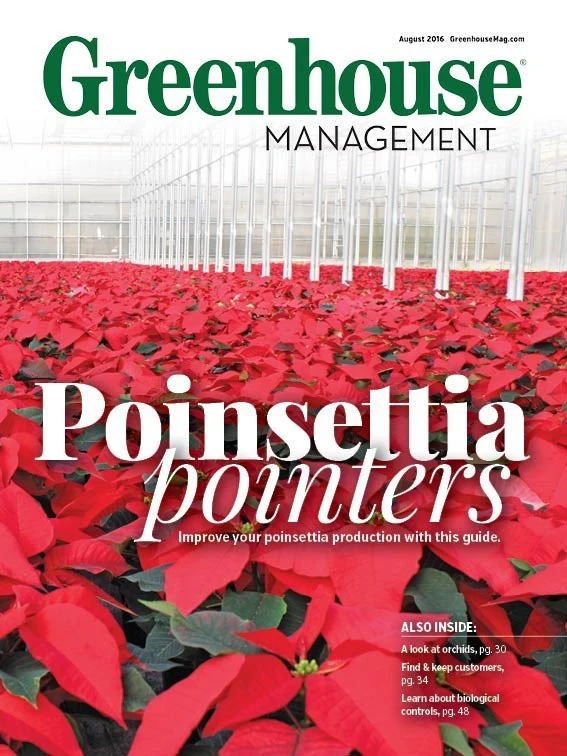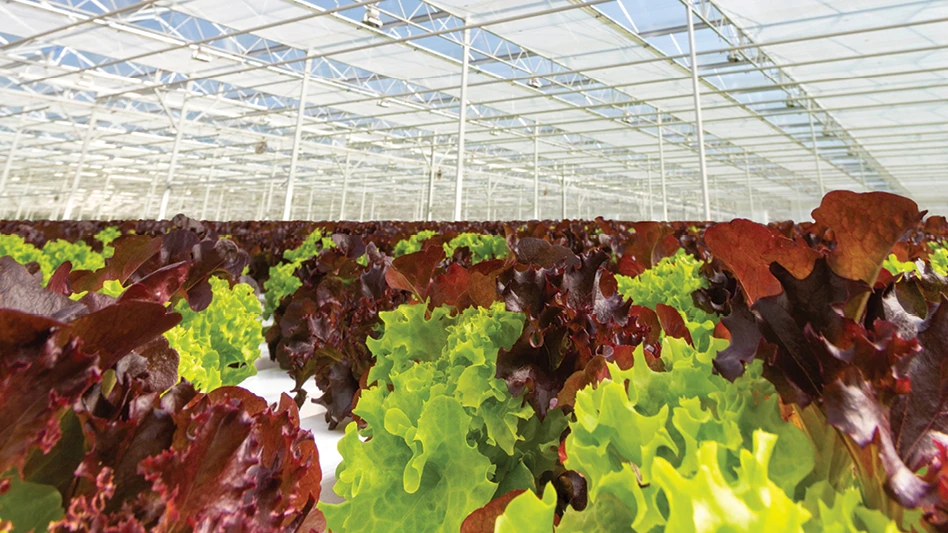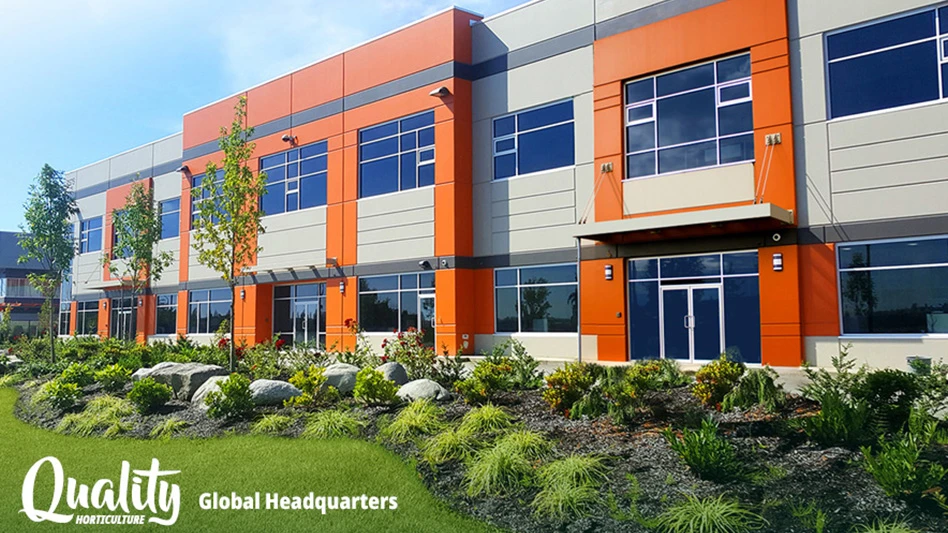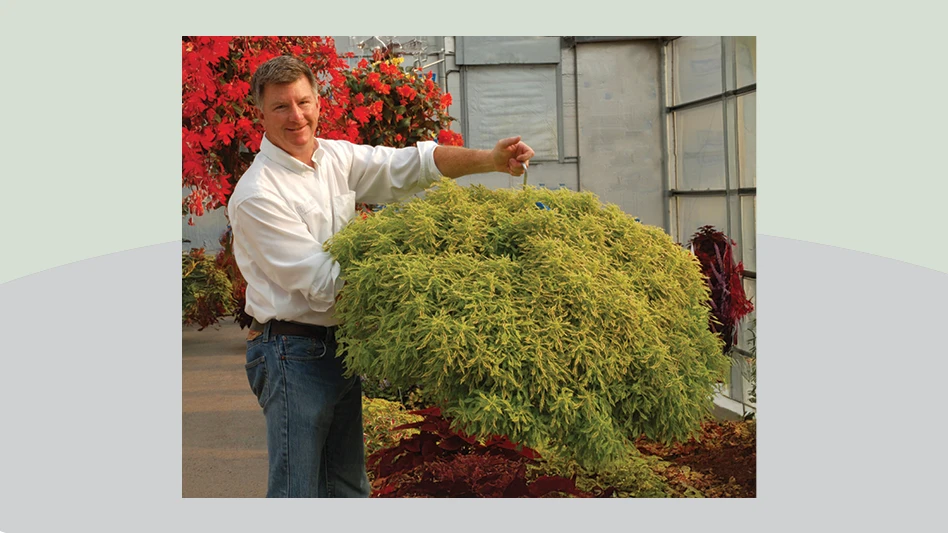
Attracting new customers, and boosting relations with the ones you already have, are two of the most important marketing endeavors for growers in today’s marketplace. But I didn’t get a lot of feedback from growers when I started scouting around for comments on how all of you are accomplishing these important tasks. I expected to get a number of comments related to how growers were changing and improving their own in-house, direct-to-consumer marketing strategies; co-marketing efforts with customer; or feedback related to updated online ordering systems. But I got the impression that perhaps customer recruiting and retention remain as challenges without easy solutions.
Product focus
While some wholesale growers are expanding their direct-to-consumer marketing and education, and improving technology to better promote their products and support their retailers, it appears most growers are primarily focused on new product development as their solution to drive new and better business. New product development does, however, require a keen focus on market trends and pinpointing where the consumer’s mind is. It’s not just about what breeders or growers think are “cool”; it’s about understanding how and why plants fit into our customer’s lives.
You may recall seeing wholesale grower ArizonaEast featured in a previous Greenhouse Management article, “A case for Instagram” (bit.ly/29OCdhh). Paying close attention to how the end-consumer sees and uses plants is a strong focus of ArizonaEast’s new product development strategy. “One of the biggest trends I’ve noticed when it comes to our customer base is the shift in consumer mentality regarding plants,” says Brianna Genovese, ArizonaEast’s marketing manager. “Potted plants and foliage — specifically succulents — are back in a big way,” she says. “And customers don’t want to see the same thing their mother or grandmother had.” According to Genovese, customers want to walk into a store and buy something that looks exactly like what they have saved on their Pinterest boards. That means they are taking their plant purchasing cues from interior and landscape designers. Younger consumers have been trained to see plants as décor, both indoors and out, and they expect the presentation of plants in a retail setting to reflect that expectation.

Style wins
Given growing expectations about aesthetics, a focus on style goes a long way. ArizonaEast used to sell their plants grown in traditional terracotta pots. But in order to make their product stand out and appeal more strongly to both style-savvy and younger consumers, they’ve upgraded to custom planters made of various modern materials with interesting shapes and colors. “By designing our own custom planters in finishes like trendy metallics, chic geometric shapes, rustic reclaimed wood and edgy concrete, we’re giving consumers a grab ‘n grow option that blends well with their existing home décor,” says Genovese.
Digital domain
When it comes to driving more sales with existing and new retailers, sometimes you need to go straight to the source of the end purchase. Growers can no longer rely on their retailers to provide enough marketing and promotions for the products they grow. In today’s marketplace, growers need to take the extra step of presenting their products to the end consumer in relevant ways. The goal is to drive brand familiarity and demand at the consumer level, which can put pressure on retailers to stock your goods. That means getting in front of the end consumer where they spend much of their time: online. If you don’t have a great website and a digital marketing strategy, it’s going to be tough to reach them.

Get social
ArizonaEast understands that their digital properties are just as important and valuable as their tangible ones. Staying tuned in to all the key social media platforms not only allows ArizonaEast staff to disseminate information about their own products and gain brand exposure, but also to tap into how end-consumers are responding to and using their products. Their social media presence not only supports ArizonaEast’s internal company goals and end-customer, it also directly supports their retailers. By monitoring end-consumer feedback, they can be a better partner to their retailers.
In fact, investing in a social media presence may be a new qualifier for you when it comes to recruiting new customers. Just think about how you shop for new goods and services as a consumer. Typically, you’re going to research a company online to get a better sense of who they are and what they have to offer. Retailers want the same thing when it comes to developing relationships and doing business with new growers. Not only do they want to see their company goals reflected in your market presence, they also want to see what you have to offer that resonates with their retail customers. Genovese says ArizonaEast’s social media presence has done just that. It’s also helped retailers better understand who they are and what they offer well before the first in-person sales meeting. “Minding your digital presence goes a long way in building your credibility as a valuable partner for your customers,” she says.
Team up
Partnership, as it turns out, is evolving to be a much more important customer service tool for growers and most other wholesale businesses operating in today’s market. Maintaining and building better relationships with the customers you currently have simply takes more than providing well-grown plants. Well-grown, healthy and attractive plants should be a baseline when it comes to good customer service; it’s how you go beyond that with your customers that will help you differentiate your product.
According to Genovese, acting in tandem with their retailers has proven to be a valuable approach for ArizonaEast. “Our best strategy for maintaining and improving customer relationships is to think of ourselves as an extension of their team,” she says. The bottom line is that you just don’t get to operate as an autonomous island any longer. Expecting customers to simply buy off your availability list, no questions asked and without much effort on your part is not a path to growth. Cooperative seasonal planning, custom grows and programs, and even regular sales meetings with your retailers is a must. And I don’t just mean an occasional pop-in from a roving sales person. Your management and marketing staff need to get in on the action as well.
Customize
While uniformity has been traditionally good for the grower, it doesn’t always serve the end consumer, and it’s also becoming less valuable to retailers. One of my most frustrating experiences as a retailer was that most growers were unwilling to create custom programs for the retail business I managed. How was I going to differentiate my selection from the mass merchants down the street without access to more unusual plants or combinations of plants? As retailers must work to set themselves apart from the pack in order to refresh their customer base and rejuvenate their market share, they’re going to be looking for products that can’t be purchased down the street at their nearest competitor — least of all at mass merchants.
In fact, it’s these store-by-store customized programs that Genovese says gives ArizonaEast a customer service edge. “We work closely with our retail partners to develop programs specifically designed with their store in mind,” she says. They then work hand-in-hand with the retailer to monitor the performance of each product to see how end-user customers respond.
Customer-customized programs aren’t easy and of course, they’ll mean more work for you as the grower. That means higher prices, which retailers will need to accept and work to pass on to their customers. If we all do a good job with perception of value for said products, higher prices shouldn’t be a problem.

Where are they?
One of your biggest challenges may be an old-school one; the simple act of locating new potential customers is a still an obstacle for many growers. “One of our biggest struggles when it comes to finding new customers is identifying key retailers outside of our home turf in the Northeast,” says Genovese. She finds there are few, if any, resources for identifying new potential retail customers beyond the “top garden center” lists published in magazines such as sister publication Garden Center. That’s a big reason ArizonaEast spends the time it does using social media and using industry-specific hashtags in hopes of attracting the attention of new retailers.
While this approach might work to a degree with smaller venues, Genovese still cites challenges with making the right connections with larger-volume outlets. “Identifying key decision makers within the large organization is the hard part,” she says. So where do you find these key individuals? LinkedIn is a great place to start, as its primary purpose is that of professional networking. That’s where having an active LinkedIn presence and a team engaged in networking (both in person and digitally) is a huge help in making the right customer connections.
Networking
One last word on customer networking. I’ll say the same thing to growers looking for new customers as I do to professionals looking to create new opportunities: Make the most of your networking time at industry conferences. While I understand that many still see industry shows as a vacation of sorts, or time to get away from the typical work routine, they are meant for business. Show up ready to sell if you expect people to buy. Be a vendor that’s prepared to take and customize retailers’ orders at the show.

Explore the August 2016 Issue
Check out more from this issue and find your next story to read.
Latest from Greenhouse Management
- North Carolina Nursery & Landscape Association announces new executive vice president
- Plant Development Services, Inc. unveils plant varieties debuting in 2025
- Promo kit available to celebrate first National Wave Day on May 3
- Applications now open for American Floral Endowment graduate scholarships
- Endless Summer Hydrangeas celebrates 20 years with community plantings
- Invest in silver
- Garden Center magazine announces dates for 2025 Garden Center Conference & Expo
- USDA launches $2 billion in aid for floriculture growers





